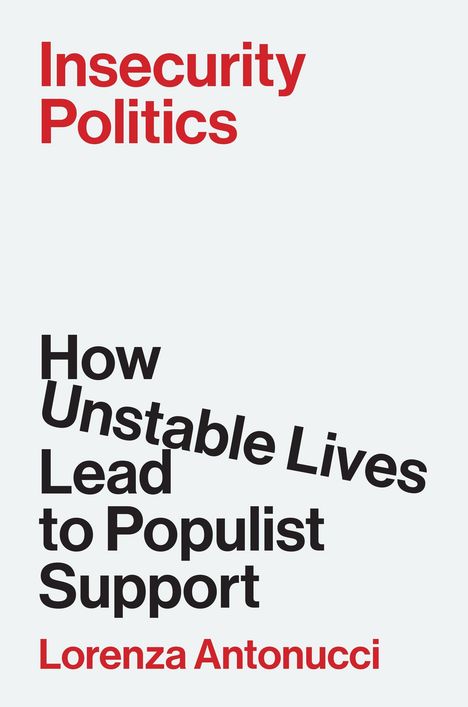Lorenza Antonucci: Insecurity Politics, Kartoniert / Broschiert
Insecurity Politics
- How Unstable Lives Lead to Populist Support
Sie können den Titel schon jetzt bestellen. Versand an Sie erfolgt gleich nach Verfügbarkeit.
- Verlag:
- Princeton University Press, 03/2026
- Einband:
- Kartoniert / Broschiert
- Sprache:
- Englisch
- ISBN-13:
- 9780691262475
- Artikelnummer:
- 12361003
- Umfang:
- 224 Seiten
- Gewicht:
- 318 g
- Maße:
- 234 x 156 mm
- Stärke:
- 13 mm
- Erscheinungstermin:
- 31.3.2026
- Hinweis
-
Achtung: Artikel ist nicht in deutscher Sprache!
Weitere Ausgaben von Insecurity Politics |
Preis |
|---|---|
| Buch, Gebunden, Englisch | EUR 110,08* |
Klappentext
The everyday realities of financial and work insecurity that drive right- and left-wing populism
In Insecurity Politics , Lorenza Antonucci examines the lived, everyday experiences that underpin political disaffection. Countering the reductive portrayals of populist voters as left-behind outsiders, Antonucci focuses on the ordinary, yet increasingly precarious, realities of work and financial instability as key to understanding the surge in populist support in both right- and left-wing politics. Drawing on robust comparative quantitative and qualitative analyses across nine European countries, Insecurity Politics describes the microlevel material and cultural dynamics that drive anti-establishment politics. It finds that dissatisfaction with work and a growing sense of financial insecurity fuel populist sentiments.
Antonucci maps the evolving landscape of insecurity in contemporary Europe, tracing its roots to structural transformations of welfare states and deep-seated cultural shifts. Proposing an original framework that combines cultural and economic explanations, the book shows how economic, social, and political factors shape receptivity to anti-establishment politics. Moving beyond conventional wisdom that attributes today's populism to cultural backlash or globalization, Antonucci addresses a critical blind spot in current research. But Insecurity Politics offers more than a mere diagnosis; it also argues that a nuanced understanding of populist attitudes could inform a renewed political agenda---one more attuned to the complex realities of people's lives.

